Find Help
More Items From Ergsy search
-
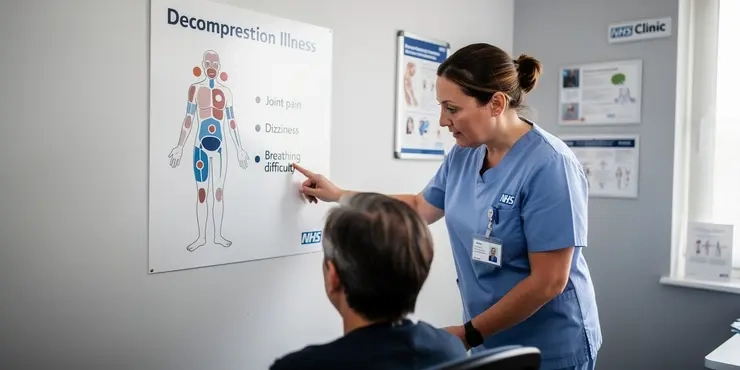
An Introduction to Decompression Illness: Signs & Symptoms”. Dr Roland Armes
Relevance: 100%
-
Leukaemia: What are the signs and symptoms? | NHS
Relevance: 36%
-

Dyspraxia Symptoms & Signs
Relevance: 36%
-
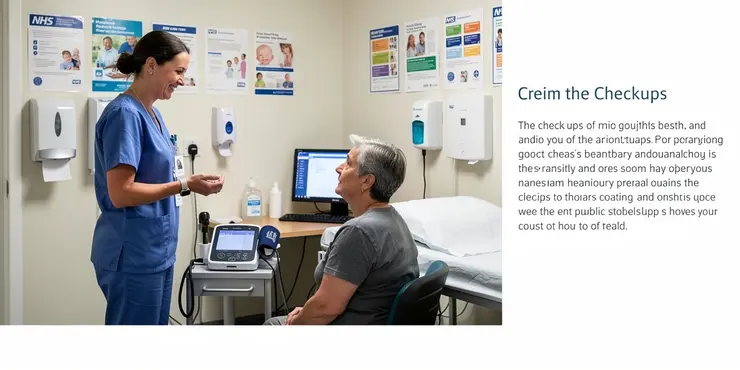
1. Introduction to sepsis and serious illness
Relevance: 36%
-

Dyspraxia Symptoms & Signs
Relevance: 36%
-

About Breast cancer - signs and symptoms | NHS
Relevance: 34%
-

How can I prevent heat-related illnesses?
Relevance: 33%
-

Dealing with Common Childhood Illnesses
Relevance: 33%
-

Understanding and Managing Respiratory Illnesses in Families
Relevance: 32%
-

Bowel cancer - Symptoms and signs to look out for
Relevance: 32%
-
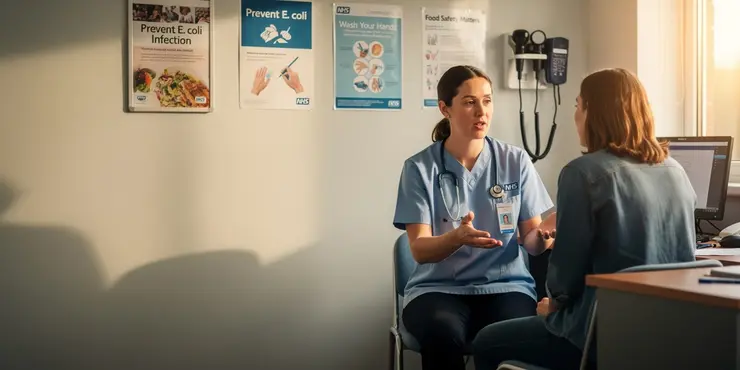
Can E. coli cause illness?
Relevance: 32%
-

Ovarian cancer - signs and symptoms to look out for
Relevance: 31%
-
Is chronic fatigue syndrome a mental illness?
Relevance: 31%
-

What are the signs of meningitis in infants?
Relevance: 31%
-

UK Sees Surge in Respiratory Illnesses as Weather Cools
Relevance: 29%
-

Managing Chronic Illness Within the Family
Relevance: 29%
-

What are the signs of heat exhaustion?
Relevance: 29%
-
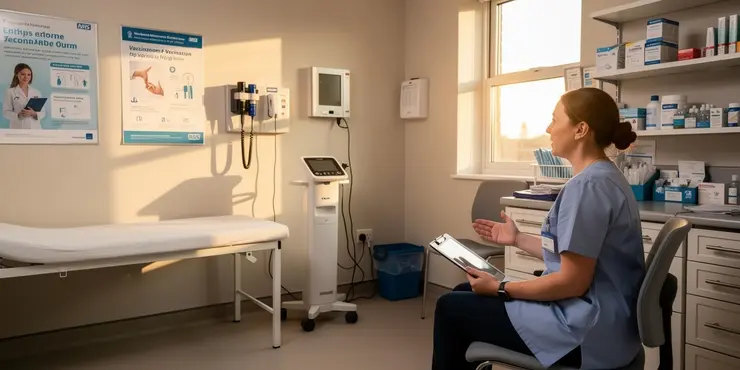
Latest Advice on Managing Respiratory Illnesses During Flu Season
Relevance: 28%
-

Who is at risk for severe illness from West Nile Virus?
Relevance: 28%
-
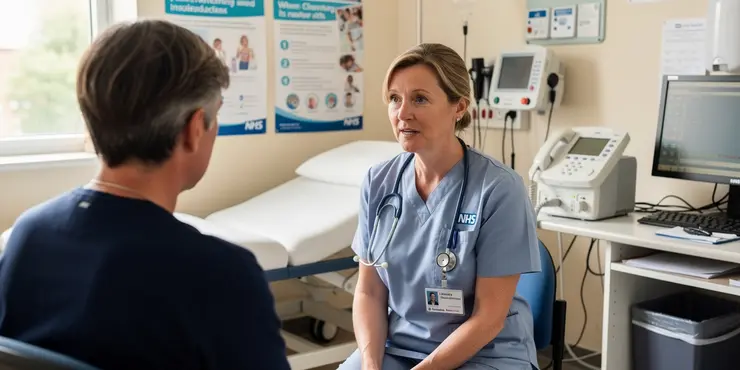
Type 2 diabetes - common signs and symptoms UHL NHS Trust
Relevance: 28%
-
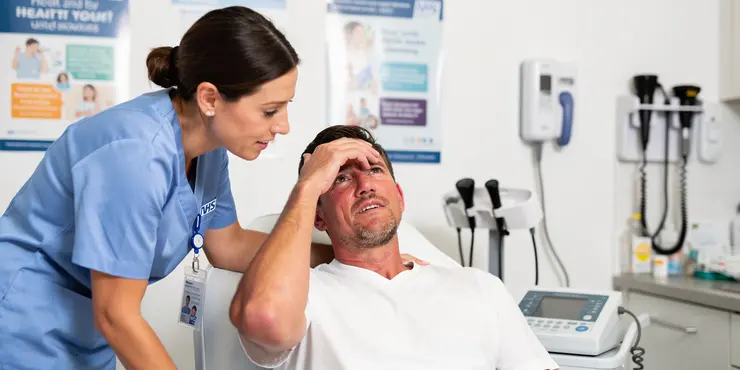
What are some signs of heat exhaustion?
Relevance: 26%
-

What is the first sign of Lyme disease?
Relevance: 26%
-

What is bronchiolitis in children? The symptoms, warning signs and when to seek medical help
Relevance: 26%
-

What are some signs of poor gut health?
Relevance: 25%
-
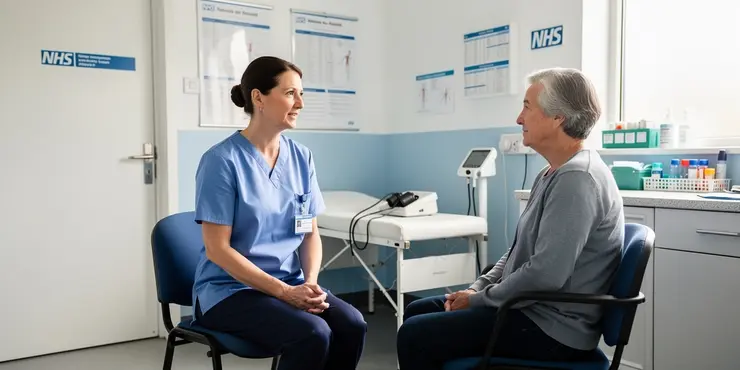
What are the symptoms of Marburg virus disease?
Relevance: 25%
-

How long will I feel ill with chikungunya?
Relevance: 24%
-

What are the signs of autism?
Relevance: 24%
-

What are the symptoms of measles?
Relevance: 24%
-
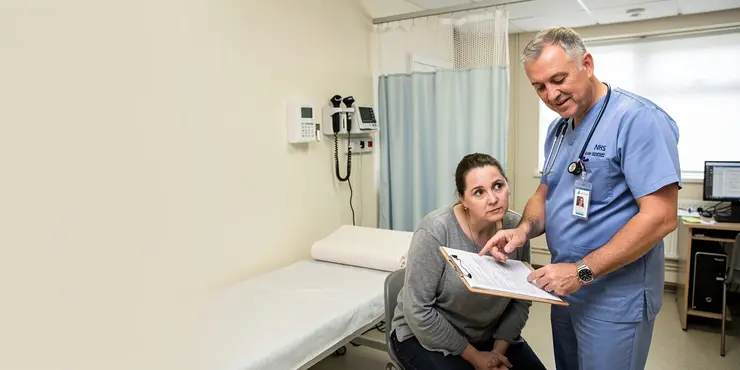
What are the symptoms of the bubonic plague?
Relevance: 24%
-

What are the symptoms of norovirus?
Relevance: 24%
-

Can H3N2 cause severe illness?
Relevance: 24%
-

What are the symptoms of Bacillus cereus food poisoning?
Relevance: 24%
-
What are common symptoms of health-related anxiety?
Relevance: 24%
-
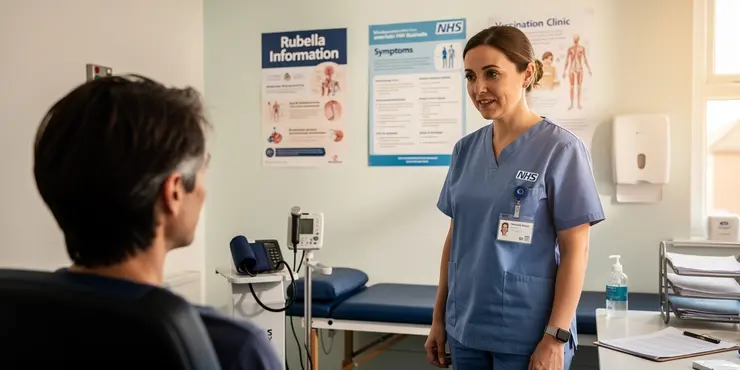
What are the symptoms of Rubella?
Relevance: 23%
-

What are the symptoms of chickenpox?
Relevance: 23%
-

How long does it take for symptoms to appear?
Relevance: 23%
-
What are the early warning signs of an eating disorder?
Relevance: 23%
-

What symptoms should I watch for if I suspect a mosquito-borne disease?
Relevance: 23%
-
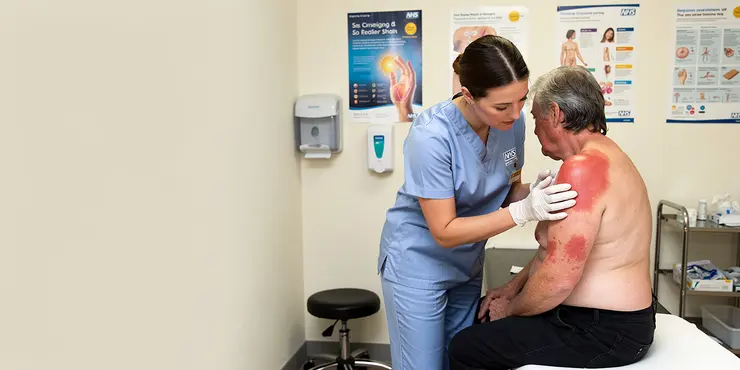
What are the symptoms of sunburn?
Relevance: 23%
-

What are the symptoms of Zika virus?
Relevance: 22%
An Introduction to Decompression Illness: Signs & Symptoms by Dr Roland Armes
What is Decompression Illness?
Decompression Illness (DCI) is a term that encompasses both decompression sickness (DCS) and arterial gas embolism (AGE). These conditions are the result of gas bubbles forming in the body due to uncontrolled ascents and other rapid pressure changes, commonly affecting divers, aviators, and individuals in hyperbaric environments.
Common Signs and Symptoms
DCI can present a wide range of signs and symptoms, making it crucial to identify early. The severity and nature of these indicators may vary depending on the affected body area.
Musculoskeletal Symptoms
One of the most frequent manifestations of DCI is joint and muscle pain, often referred to as "the bends." This discomfort typically occurs in the shoulders, elbows, knees, and ankles shortly after ascent.
Neurological Symptoms
Neurological issues form another significant cluster of symptoms. These may include headaches, dizziness, confusion, visual disturbances, numbness, and weakness. In severe cases, individuals may experience paralysis or unconsciousness.
Skin and Respiratory Symptoms
Changes in skin appearance, including rashes or marbling, and respiratory issues like chest pain and coughing can also indicate DCI. Symptoms such as difficulty breathing or a persistent cough should be considered serious and warrant immediate medical evaluation.
Gastrointestinal and Cardiovascular Symptoms
Though less common, gastrointestinal symptoms such as nausea and vomiting, along with cardiovascular symptoms like a rapid heartbeat or chest pain, can occur. These symptoms may appear separately or in conjunction with other signs.
Action Steps and Medical Attention
If you suspect DCI, it is crucial to seek immediate medical attention. In the United Kingdom, contacting emergency services and explaining the potential case of decompression illness can facilitate prompt and appropriate care. Always provide as much information as possible about recent activities that involve pressure changes.
An Introduction to Decompression Illness: Signs & Symptoms by Dr Roland Armes
What is Decompression Illness?
Decompression Illness (DCI) happens when gas bubbles form in your body. This can happen if you come up too quickly while diving or if you are in places where the air pressure changes fast. It mostly affects divers and people who fly in planes.
Common Signs and Symptoms
There are many signs that show DCI. It is important to know them early. These signs can be different depending on where in the body they happen.
Musculoskeletal Symptoms
A common sign of DCI is pain in your joints and muscles. People call this "the bends." This pain usually happens in shoulders, elbows, knees, and ankles after coming up from a dive.
Neurological Symptoms
DCI can also cause problems in the brain. You might get headaches, feel dizzy, confused, or see things that are not there. Sometimes parts of your body can feel numb or weak. In bad cases, you might not be able to move or stay awake.
Skin and Respiratory Symptoms
DCI can make your skin look different, like getting a rash or changes in color. Breathing can be hard too, and you might have chest pain or cough a lot. If breathing is difficult, it is very important to see a doctor right away.
Gastrointestinal and Cardiovascular Symptoms
Sometimes DCI can make you feel sick to your stomach or make your heart beat fast. You might feel like throwing up or have chest pain. These signs can show up alone or with other problems.
Action Steps and Medical Attention
If you think you have DCI, see a doctor right away. In the UK, call emergency services and tell them you might have decompression illness. Explain any recent activities with pressure changes.
Frequently Asked Questions
What is decompression illness?
Decompression illness (DCI) refers to conditions caused by the body's response to a rapid decrease in pressure, typically as a result of diving or ascending to altitude too quickly.
What are the two types of decompression illness?
The two types of decompression illness are decompression sickness (DCS) and arterial gas embolism (AGE).
What causes decompression illness?
DCI is caused by the formation of gas bubbles in the body. This can occur due to rapid ascent from depth when diving or changing pressure environments too quickly.
What are the common symptoms of decompression sickness (DCS)?
Symptoms of DCS can include joint and muscle pain, fatigue, dizziness, numbness, and difficulty breathing.
What are some signs of arterial gas embolism (AGE)?
Signs of AGE include chest pain, difficulty breathing, confusion, weakness, and loss of consciousness.
How quickly do symptoms of decompression illness appear?
Symptoms can appear immediately after surfacing or may be delayed for several hours. Observing for signs up to 24 hours after a dive is generally recommended.
How is decompression illness diagnosed?
DCI is diagnosed through a combination of clinical symptoms, patient history (especially recent diving activity), and sometimes medical imaging.
How is decompression illness treated?
Treatment typically involves hyperbaric oxygen therapy, where patients breathe pure oxygen in a pressurized chamber.
Can decompression illness be prevented?
Yes, DCI can be prevented by following safe diving practices, including ascending slowly and taking safety stops, and staying within the limits of dive tables or dive computers.
What should I do if I suspect I have decompression illness?
Seek immediate medical attention if you suspect DCI. Administer 100% oxygen if available, keep the person hydrated and avoid re-entering the water.
How common is decompression illness among divers?
DCI is relatively rare among recreational divers, with a general incidence rate of about 1 to 4 cases per 10,000 dives.
What factors increase the risk of decompression illness?
Risk factors include rapid ascent, long or deep dives, dehydration, fatigue, lack of physical fitness, and previous history of DCI.
Is decompression illness life-threatening?
While DCI can be serious and potentially life-threatening, prompt treatment significantly improves the chances of a full recovery.
Are certain individuals more prone to decompression illness?
Yes, individuals with certain medical conditions, such as patent foramen ovale (a type of heart defect), may have an increased risk of DCI.
Do weather and environmental conditions affect the risk of decompression illness?
Yes, factors like cold water temperatures, strenuous activity during or after the dive, and poor physical conditioning can increase the risk of DCI.
What is decompression illness?
Decompression illness is something that can happen to people who dive underwater. It happens when you come up to the surface too quickly. Your body gets bubbles inside, and they can make you feel sick.
If you dive or swim deep, it's important to come up slowly. This helps you stay safe from bubbles that can make you sick.
Tools that can help divers stay safe:
- Buddy System: Dive with a friend to watch out for each other.
- Dive Computer: This helps you know how fast to come up.
- Safety Stops: Take breaks as you come up to let your body rest.
Decompression illness (DCI) happens when the body gets hurt because of a quick change in pressure. This can happen if you swim up to the surface from deep in the water or go to a high place too fast.
What are the two types of decompression sickness?
Decompression sickness can make you feel very sick after you go diving underwater or fly high in an airplane. There are two types:
- Type 1: This can cause pain in your arms and legs, like a strong cramp. It can also make your skin itch or get red spots.
- Type 2: This is more serious. It can make you feel dizzy, very tired, or it can be hard to breathe. It might also make it hard for you to move your arms or legs.
If you or someone else shows these signs after diving or flying, it's important to get help from a doctor right away.
To understand better, you can:
- Use pictures to see what decompression sickness looks like.
- Watch videos made for kids that explain diving and how to be safe.
- Talk to someone who works with divers or pilots, like a teacher or a helper.
There are two kinds of decompression illness. They are called decompression sickness (DCS) and arterial gas embolism (AGE).
What makes decompression illness happen?
Decompression illness can happen when people come up too fast from deep underwater. Here is how it works: - When you are deep underwater, your body takes in more gas, like nitrogen, from the air. - If you come up to the surface too quickly, the extra gas can make bubbles in your body. - These bubbles can make you feel sick. Here are some ways to stay safe: - Rise to the surface slowly. - Use a dive computer or watch to track your time underwater. - Take breaks while coming up to let your body adjust. If you feel sick after diving, tell an adult or a doctor right away.DCI happens when tiny bubbles of gas form in your body. This can happen if you come up too fast when diving or if the pressure around you changes too quickly.
What happens to your body when you get "the bends"?
When people dive deep in water and come up too fast, they can get sick. This sickness is called "the bends" or decompression sickness.
Here are some things that might happen if you get "the bends":
- You might feel pain in your joints, like your elbows and knees.
- You might feel dizzy or lightheaded.
- Your skin might itch or get red spots.
- You could feel very tired and weak.
To understand better, you can use pictures and videos that show what happens. It helps to talk to a grown-up if you need more help to understand.
Signs of DCS (Decompression Sickness) can be:
- Pain in your joints and muscles.
- Feeling very tired.
- Feeling dizzy.
- Feeling numb or tingly.
- Having trouble breathing.
If it's hard to read, you can try using a ruler or your finger to follow the words. You can also read out loud or have someone read with you.
What are some signs of air bubbles in the blood?
Air bubbles in the blood can be dangerous. Here are some signs to look out for:
- Trouble breathing
- Chest pain
- Dizziness or feeling confused
- Weakness
- Losing consciousness
If you see these signs, get help from a doctor right away.
Helpful Tip: You can use pictures or simple videos to understand more about this topic.
Signs of AGE are:
- Pain in the chest
- Hard to breathe
- Feeling mixed-up or confused
- Feeling weak
- Passing out or losing consciousness
It can help to use pictures or simple words to understand these signs better. Ask someone to explain big words. A tool like a picture chart can help remember the signs.
How fast do signs of decompression sickness show up?
Decompression sickness can happen when people come up too quickly after being deep underwater. Here’s what you need to know:
Signs may start fast: Sometimes, signs can show up within minutes. Other times, it can take a few hours.
What to look for: People may feel tired, dizzy, sore, or have trouble breathing.
Help tools: It can be helpful to use pictures, videos, or simple guides to understand more about decompression sickness. If you need extra help, ask someone to explain it to you.
Symptoms can show up right after coming up from the water. They might also start a few hours later. It's a good idea to watch for any signs for a whole day after diving.
How do doctors find out if someone has decompression illness?
Doctors find out if someone has DCI by looking at the symptoms, asking about their diving history, and sometimes using special pictures from machines.
How do doctors help if you have decompression illness?
The treatment usually uses a special way to help people feel better. It’s called hyperbaric oxygen therapy. In this treatment, people breathe in pure oxygen inside a special room or chamber that is pressurized.
Can you stop getting decompression sickness?
Decompression sickness is when your body gets sick from changes in pressure. It can happen when diving or flying. Here are some simple tips to help prevent it:
- Move slowly when coming up from deep water.
- Take breaks during long dives.
- Drink plenty of water.
- Use a watch to keep track of time underwater.
If you are learning to dive, taking a course or using a diving buddy can help keep you safe. Wearing a dive computer or using apps can also help track your dives.
Yes, you can stop DCI by using safe diving rules. Go up to the surface slowly, take breaks, and follow the dive table or dive computer limits.
What should I do if I think I have decompression illness?
If you think you have decompression illness:
- Stop what you are doing. Rest right away.
- Tell someone you trust about how you feel.
- Call for help or ask someone to call for you.
- Go to a doctor or hospital as soon as you can.
You can use these tools to help you:
- A simple phone to call for help.
- A friend or family member to be with you.
- A list of emergency phone numbers.
If you think someone is sick with DCI, get them to a doctor right away. Give them pure oxygen if you can. Make sure they drink water and keep them out of the water.
How often do divers get hurt by going up too fast?
Divers can get hurt if they swim to the top too fast. This is called decompression illness.
It doesn't happen very often, but it can still be dangerous.
Support tools like swimming slowly to the top and taking breaks can help keep divers safe.
DCI (Decompression Illness) does not happen a lot to people who dive for fun. It happens about 1 to 4 times out of every 10,000 dives.
What makes decompression illness more likely?
There are things that can make it more likely for someone to get hurt when diving:
- Going up too quickly from the water
- Diving for a long time or going very deep
- Not drinking enough water
- Being really tired
- Not being fit and strong
- Having had diving problems before
Some things that can help:
- Take breaks and rest when you need to
- Drink lots of water
- Go up slowly from a dive
- Talk to a doctor if you had problems diving before
Can decompression illness be very dangerous?
DCI can be very serious, and it can make you really sick. But don't worry! If you get help fast, you can get better and be healthy again.
Who is more likely to get decompression sickness?
Yes, people with some health problems, like a hole in the heart, might have a higher chance of getting DCI.
Do weather and the environment change the chances of getting sick from diving?
Yes, things like cold water, doing hard exercise during or after diving, and not being fit can make it more likely to get DCI.
If reading is tough, try using reading apps that can read the text out loud. Highlighting one line at a time can also help.
Useful Links
This website offers general information and is not a substitute for professional advice.
Always seek guidance from qualified professionals.
If you have any medical concerns or need urgent help, contact a healthcare professional or emergency services immediately.
Some of this content was generated with AI assistance. We’ve done our best to keep it accurate, helpful, and human-friendly.
- Ergsy carfully checks the information in the videos we provide here.
- Videos shown by Youtube after a video has completed, have NOT been reviewed by ERGSY.
- To view, click the arrow in centre of video.
- Most of the videos you find here will have subtitles and/or closed captions available.
- You may need to turn these on, and choose your preferred language.
- Go to the video you'd like to watch.
- If closed captions (CC) are available, settings will be visible on the bottom right of the video player.
- To turn on Captions, click settings .
- To turn off Captions, click settings again.
More Items From Ergsy search
-

An Introduction to Decompression Illness: Signs & Symptoms”. Dr Roland Armes
Relevance: 100%
-
Leukaemia: What are the signs and symptoms? | NHS
Relevance: 36%
-

Dyspraxia Symptoms & Signs
Relevance: 36%
-

1. Introduction to sepsis and serious illness
Relevance: 36%
-

Dyspraxia Symptoms & Signs
Relevance: 36%
-

About Breast cancer - signs and symptoms | NHS
Relevance: 34%
-

How can I prevent heat-related illnesses?
Relevance: 33%
-

Dealing with Common Childhood Illnesses
Relevance: 33%
-

Understanding and Managing Respiratory Illnesses in Families
Relevance: 32%
-

Bowel cancer - Symptoms and signs to look out for
Relevance: 32%
-

Can E. coli cause illness?
Relevance: 32%
-

Ovarian cancer - signs and symptoms to look out for
Relevance: 31%
-
Is chronic fatigue syndrome a mental illness?
Relevance: 31%
-

What are the signs of meningitis in infants?
Relevance: 31%
-

UK Sees Surge in Respiratory Illnesses as Weather Cools
Relevance: 29%
-

Managing Chronic Illness Within the Family
Relevance: 29%
-

What are the signs of heat exhaustion?
Relevance: 29%
-

Latest Advice on Managing Respiratory Illnesses During Flu Season
Relevance: 28%
-

Who is at risk for severe illness from West Nile Virus?
Relevance: 28%
-

Type 2 diabetes - common signs and symptoms UHL NHS Trust
Relevance: 28%
-

What are some signs of heat exhaustion?
Relevance: 26%
-

What is the first sign of Lyme disease?
Relevance: 26%
-

What is bronchiolitis in children? The symptoms, warning signs and when to seek medical help
Relevance: 26%
-

What are some signs of poor gut health?
Relevance: 25%
-

What are the symptoms of Marburg virus disease?
Relevance: 25%
-

How long will I feel ill with chikungunya?
Relevance: 24%
-

What are the signs of autism?
Relevance: 24%
-

What are the symptoms of measles?
Relevance: 24%
-

What are the symptoms of the bubonic plague?
Relevance: 24%
-

What are the symptoms of norovirus?
Relevance: 24%
-

Can H3N2 cause severe illness?
Relevance: 24%
-

What are the symptoms of Bacillus cereus food poisoning?
Relevance: 24%
-
What are common symptoms of health-related anxiety?
Relevance: 24%
-

What are the symptoms of Rubella?
Relevance: 23%
-

What are the symptoms of chickenpox?
Relevance: 23%
-

How long does it take for symptoms to appear?
Relevance: 23%
-
What are the early warning signs of an eating disorder?
Relevance: 23%
-

What symptoms should I watch for if I suspect a mosquito-borne disease?
Relevance: 23%
-

What are the symptoms of sunburn?
Relevance: 23%
-

What are the symptoms of Zika virus?
Relevance: 22%


